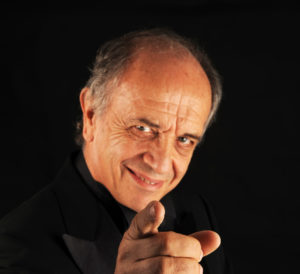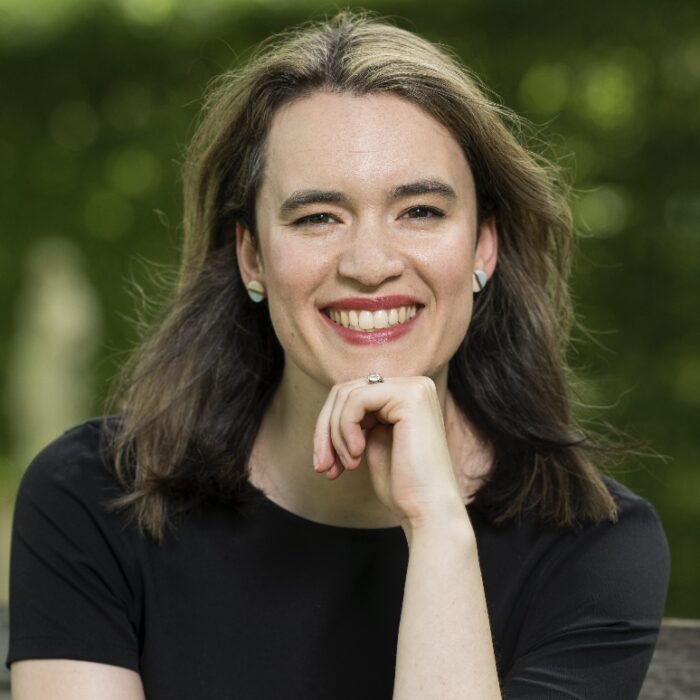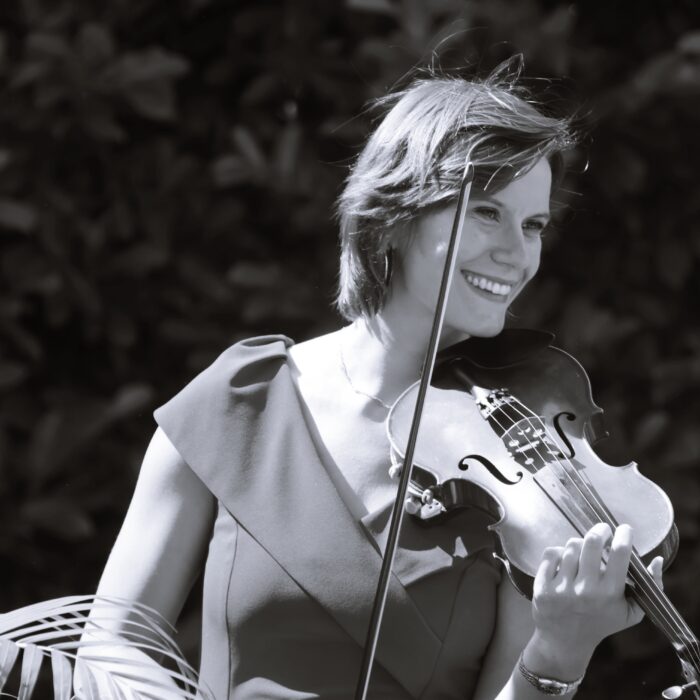
Q & A: Leo Nucci on COVID-19, His Return to the Stage & the Teatro alla Scala
By Giulio AlberoniLeo Nucci is one of the most famous baritones in the world. During his career, he has performed dozens of roles, but the one for which he is certainly most famous is that of Rigoletto.
He has performed his signature role more than 500 times all over the world including Teatro alla Scala, Arena di Verona, Opernhaus Zurich, Teatro Regio di Parma, Metropolitan Opera, Wiener Staatsoper, and Bayerische Staatsoper.
Earlier this year the legend announced he would retire from the stage but would continue to direct. However, after lockdown, Nucci returned to the stage in “La Traviata” at the Teatro alla Scala and the Arena di Verona.
In a recent interview in the Galleria Vittorio Emanuele in Milan, a few steps from the Teatro alla Scala, OperaWire spoke with the legendary baritone about his career, the lockdown, and why he decided to return to the stage.
OperaWire: How was your experience of the lockdown period?
LN: During the lockdown period I continued to exercise regularly. I live not far from the city of Lodi, which was the place where the first case of COVID-19 was recorded in Europe. Because of this, I experienced the lockdown before the rest of the Italian population, the area where I live being the first declared a “red zone.”
I finished the performance of “Nabucco” in the city of Turin on Feb. 22 and the area where my house is was declared a red zone on Feb. 21. I remember those days well: there was great silence, you could only hear the sounds of nature, but these were broken by the sirens of the ambulances, hundreds of sirens. A heartbreaking, distressing sound. That was certainly a time of great concern about what was happening, but it was also a time of reflection. I had announced that I would end my career as a baritone after that performance on Feb. 22nd.
But I’m still here, this interview is taken in the period in which I am performing in “La Traviata” at the Teatro alla Scala in Milan. What motivated my decision not to leave the stage was the thought that the audience would be sorry to not see me on stage again. I understood that we all have a role in life and we have to play it fully because this is our way of being useful to others. Because of COVID-19 I have lost colleagues, I have lost friends, and in their memory, I must move forward in my career. These terrible times must be overcome by the commitment of all.
During the lockdown period, as always, I practiced. Four years ago I decided I wanted to learn to play the cello. I played the trombone as an instrument, but I wanted to learn something new. I, therefore, dedicated myself to practicing the cello. I just finished a lesson today too, I played Jean-Baptiste Bréval’s sonata in four strokes. I am beginning to be satisfied with my results. But I certainly didn’t dedicate all my time during the lockdown to music; I read, wrote, I cooked, and even pulled out the toy trains.
Another realization I came to during the lockdown was that this virus has generated an epochal turning point for our world. I remember that when the HIV pandemic broke out in the 1980s, I was in San Francisco. I sang “Il Barbiere di Siviglia” while my wife sang the role of Liù in “Turandot.” That epidemic was a terrible thing but it did not affect the destinies of the world. It upset the lives of many people, it killed many, but society at large was not radically changed by that disease. COVID-19, in contrast, has changed lives at a global level.
OperaWire: Tell us about the experience of performing “La Traviata” at the Teatro alla Scala, in concert form after the first lockdown?
LN: It is not the first time that I have performed in an opera without sets. I really love doing concert operas. An opera which I have often performed without sets is “I due Foscari.” Before doing “La Traviata” here in Milan, I had done “Gianni Schicchi” at the Arena di Verona. On that occasion, I also performed without sets and scenery. The concert opera is therefore not something that struck me as particularly unusual. What did strike me, however, is the same thing that also struck Maestro Zubin Mehta. I’m talking, of course, about the empty seats in the theater. The social distancing between people has imposed very strict rules. In order to maintain a safe distance between people in the theater, signs were placed on the seats that could not be occupied by the audience. There were consequently many empty seats. The Scala theater, with such a small audience, left an impression with me. This is an image that will remain in my heart with great sadness.
OperaWire: In addition to your activity as a baritone, you are also involved in directing.
LN: I’ve been in directing for seven years. To be exact, I direct the staging. The direction is done by the directors, who often do not know the opera; but considering that I know the operas, I direct the staging. When opera was born there were no directors. The expression that was used in France to define the role at this time was ‘mettre en scène’ which means “to stage.” In Italy the word “regista,” which means “director,” was created in 1931 by Bruno Migliorini to replace the French term “régisseur.” In Italy, before 1931 that word did not exist. This newly invented term was not intended as a mere translation from French, however. “Régisseur” specifically means “organizer,” a qualification that indicates as a concept the setting of the scene. In Italian, it was given a more noble value.
Before 1931 an opera was “mettre en scène:” they tried to stage what the author had written. It was certainly very difficult because, first of all, they needed to understand what the author had in mind, what their idea was. The birth of the “regista,” not so much of the word, but more of the role meant that these people gave their personal interpretation of the opera, ignoring interpretations of the author’s original ideas.
OperaWire: How was your love for opera born?
LN: Music was always a part of my family, they were all passionate. When I came to professionally sing “Rigoletto” and the other operas as an adult I didn’t need to study them; I already knew them from childhood. As a child, I started playing the bass horn in B flat in the town band. I practiced regularly and sang even when I was alone at home. That’s really how my career started; one day I was at home by myself and I was singing “La Strada nel Bosco” by Gino Bechi. In that moment a singing teacher was passing under the windows of my house with his pupil. The singing teacher asked his pupil “who is singing? Do you know him?” and the pupil replied, “Gigi lives in that house, but Gigi is a bass, this is a baritone, so it must be Leo.” Gigi was my father. The teacher immediately wanted to hear me sing. I have not stopped singing since.
OperaWire: Tell us about your relationship with the Teatro alla Scala.
Leo Nucci: I made my debut as a soloist in 1967. In April 1970 I was part of the cast of “Carmen” at the opera house in Rome. It was the first time that “Carmen” was performed with the original recitatives. The recitatives were spoken and not sung. The costumes for that opera had been done by Renato Guttuso, a famous Italian painter. The role of Carmen was performed by Grace Bumbry while the role of Micaela was sung by the soprano Mietta Sighele. Richard Tucker sang Don José, and I was Le Dancaire. That was the first time I was part of a major cast. That experience, with an international cast, gave me an idea. Around the same time construction was being finalized on the Sydney Opera House and I knew that this theater was hiring opera singers. I decided to go to Australia: but to go to Australia I had to be able to speak English. I lived in Castiglione dei Pepoli, the town where I had been born. This town is located between the city of Bologna and Florence. The Australian consulate closest to my home was in Florence.
One day I went to the Australian consulate and on my way there I saw billboards for “Te Deum” by Giuseppe Verdi, directed by Claudio Abbado. I decided to go to see that show. When the choir entered I saw that a tenor with whom I had debuted was part of that choir. When I spoke to him, he told me that he had joined the choir of the Teatro alla Scala in Milan. I told him I had decided to go to Australia and he told me that in June there would be auditions to enter the Scala choir. I thought that joining the choir of the Teatro alla Scala was a great opportunity for my career and momentarily abandoned my plan to move to Australia. My plan was to stay in Milan for one year. During that time I would have studied the English language and then I would have left for Sydney. I auditioned at La Scala with Maestro Benaglio. Benaglio asked me “are you really sure you want to join the choir of the Teatro alla Scala?” I replied “Maestro, if you take me, sure I will!” and he took me! It was September 2, 1970. Two or three days later I went to the restaurant inside the theater and met my wife, Adriana Anelli. She had already sung at the Teatro alla Scala as a soloist. My life had changed forever.
We got married, and three and a half years later, in a provincial theater, we interpreted “Rigoletto” together for the first time. I worked continuously at the Teatro alla Scala from September 1970 to May 1973 when I made that “Rigoletto.” I resigned from the Teatro alla Scala in 1975 because–thanks to Maestro Grassi–I started working abroad more regularly. I returned to the Teatro alla Scala in 1977, no longer as a chorister but as a soloist, with the “Il Barbiere di Siviglia.” And I’m still here; I haven’t missed a season!
OperaWire: You are world-famous for the role of Rigoletto and the role of Figaro. Which of the two do you personally prefer?
LN: There are two characters whom I feel are dearest to me. One is in the dramatic repertoire and one is in the buffo repertoire. The serious character is Francesco Foscari of “I due Foscari” by Giuseppe Verdi. The buffo role is that of Gianni Schicchi of the eponymous opera by Giacomo Puccini. I feel close to neither Figaro nor Rigoletto because they are two rascals, even if they are two masterpieces from an artistic point of view.
Certainly, the public recognizes me more for the role of Rigoletto because I believe I am the singer who has interpreted him the most in the history of the opera. It is such a masterpiece that I never tire of singing it. The amazing thing about this role is that in each new performance the character is never identical to the previous time; it is always new. This continually amazes the audience, and also the colleagues who work with me.
Opera Wire: How do you think opera will be in the future; say in two hundred years?
LN: This is a question that certainly arose also in 1400 in the palace of Count Bardi in the town of Vernio. Count Bardi, with his Florentine Camerata, created melodrama; the dawn of the opera. Claudio Monteverdi, the person who further contributed to the formation of the opera between 1500 and 1600, asked himself the same question. Mozart asked himself this too, and would go on to destroy all the musical canons of his time. Later Bellini and Donizetti posed to themselves the same question, as did Giuseppe Verdi a few decades later. In asking themselves this question all these important historical figures were induced to innovate, to think about the future, to create something new. Opera follows the times like any other form of art. I don’t know what music will be like in two hundred years, but I already notice new and notable mixtures.
I am a Broadway musical lover; in “Le Miserables” and in “The Phantom of the Opera” there are references to the opera. In the musical “Mamma Mia” there is a subtle analogy relating to the opera, in “Cats” there is even a mockery of the opera in Act two. I am convinced that in the future these mixtures will give life to something new. It has not yet happened because we are living in a decadent era. Music follows society, so music will flourish again when we are in a flourishing era. The opera that mimics the past, the one that is so often written in our time, the opera that claims to be new but keeps its roots in history: this opera is destined to disappear. Nobody knows about modern operas that have been written in the last 20 years. A new Mozart will certainly be born, but when it happens it will be completely different, unexpected, and brilliant. We must look to the past, as Giuseppe Verdi said, not to go back to it. The thing that will come after opera will perhaps no longer be called “opera.” It will have a new name. This name won’t be “musical” either. After all, Giacomo Puccini invented the musical with his opera “La Fanciulla del West.” From one thing always comes the next.


